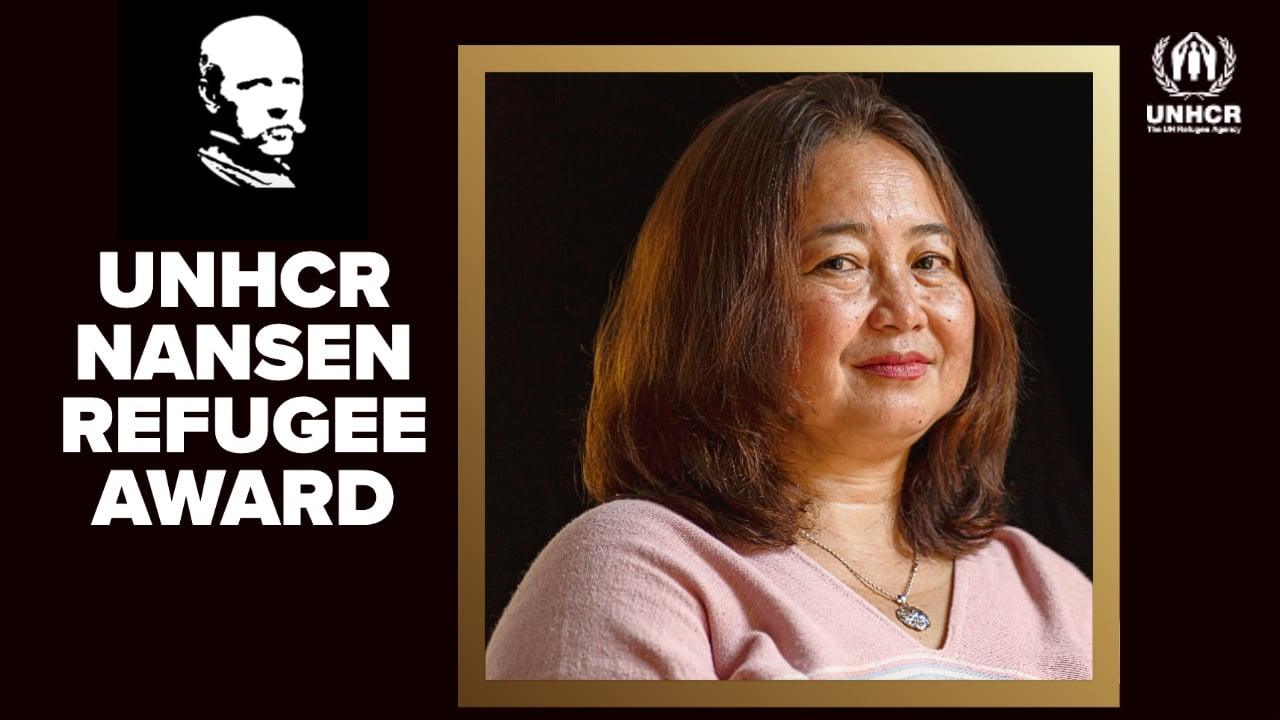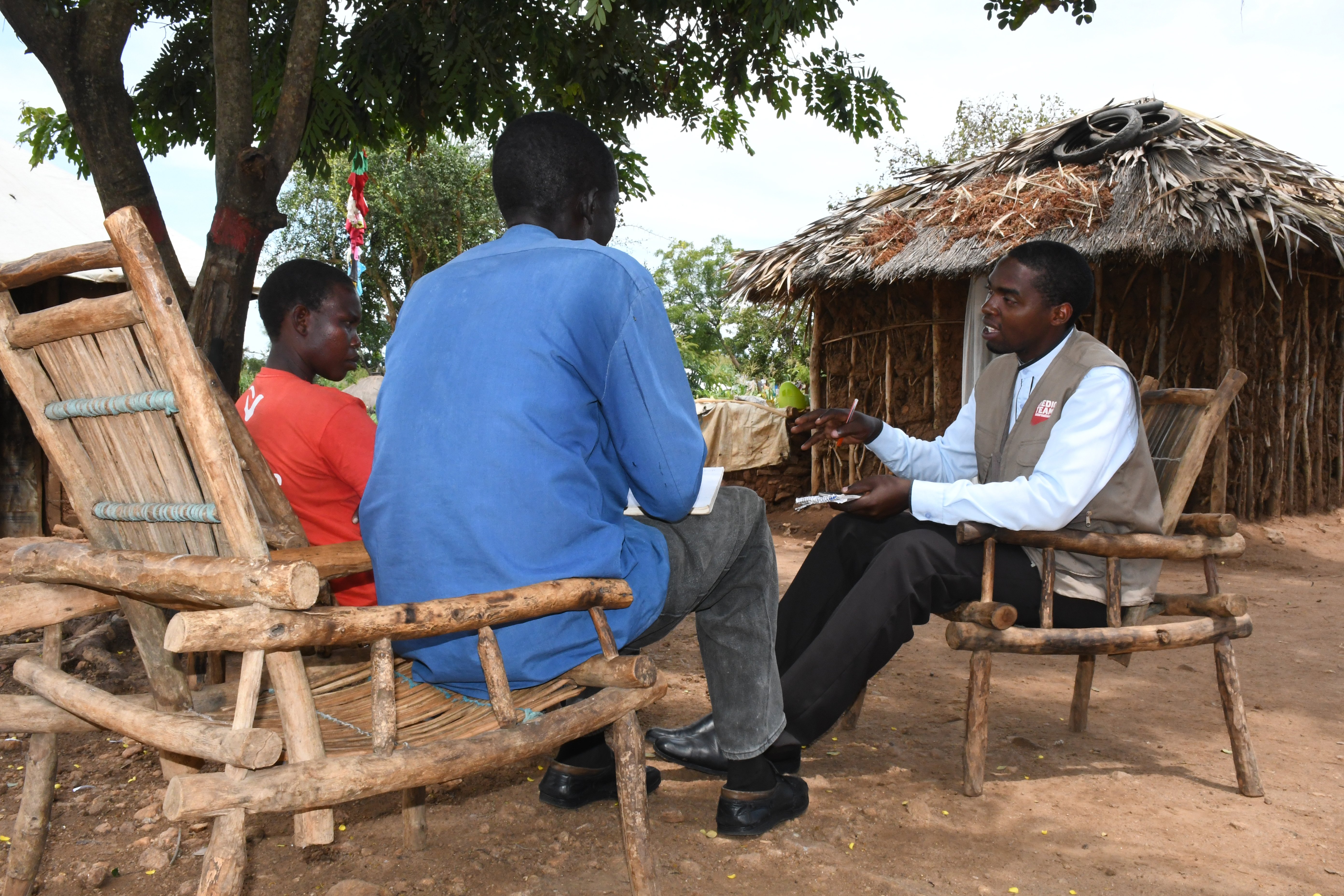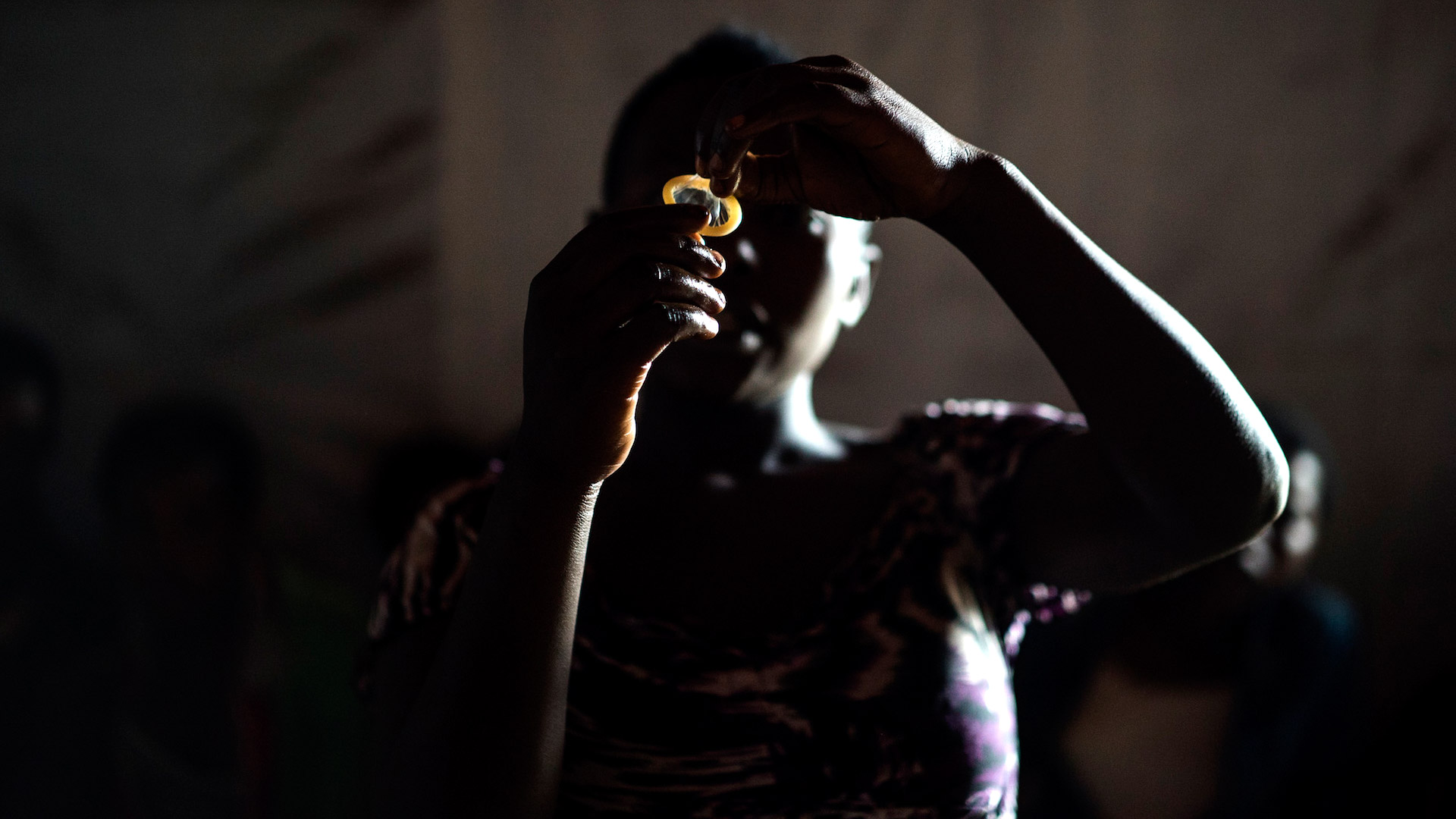Refugee religious leaders review HIV-AIDS approach
Refugee religious leaders review HIV-AIDS approach

JOHANNESBURG, South Africa, November 6 (UNHCR) - Religious leaders like Christian Pastor Fils Nawaya have an enormous amount of influence among South Africa's refugee communities and the UN refugee agency believes they can play an increasingly vital role in tackling HIV and AIDS.
But Nawaya's approach to HIV and AIDS among his large Congolese flock in central Johannesburg, though well-meaning, is often authoritarian and does not go much beyond spiritual support and end-of-life care. Many other refugee religious leaders, regardless of their faith, work the same way.
In a bid to change mindsets, the UN refugee agency for the first time held unprecedented consultations on HIV and AIDS here recently with Christian and Muslim refugee leaders, including Nawaya. The results seem to have been fruitful, with the 18-strong group agreeing to listen more and admonish less, and to preach awareness about HIV and AIDS.
"The outcome has been amazing," UNHCR Senior Regional HIV and AIDS Coordinator Laurie Bruns said after the meeting. "It ended with each leader making a personal commitment to doing something new and expanding their role, based on the information they got from the consultation.
"As many of them shared those commitments with us at the end of the meeting, you could really see that they had moved so far beyond what they came with in the beginning, including Nawaya," Bruns added.
Be they Christian, Buddhist, Muslim or Jewish, religious leaders have long been confronted with the reality that many members of their communities are affected by HIV and AIDS. But Bruns believes many have lacked the skills, foresight or knowledge to play a more positive role in helping those affected by the disease or preventing its spread.
The consultations were aimed at helping them see the problem from a fresh prospective and to take a more constructive and supportive approach towards prevention. The talks were also aimed at increasing their awareness of technical issues such as voluntary counselling and testing, prevention of mother to child transmission and anti-retroviral support.
One focus of the consultations was mandatory testing for HIV, which is advocated by Nawaya and some of the other religious leaders present. Nawaya insists that members of his congregation planning to get married must be tested for HIV. "My church keeps files of all newly married couples in the church, including their HIV results," said the pastor, who was surprised when other participants said this was an intrusion of privacy.
"Mandatory testing, which this is sounding like, has never shown to be effective," noted Bruns, adding that she believed Nawaya "and his church didn't realize the potential damage the way they were going about it could have."
But the fact that Nawaya learned from this criticism - and other recommendations to emerge from the meeting - showed that it had great value. "I've learned that HIV is not a punishment from God," the pastor said at the end of the workshop to applause from other participants.
Regarded as having the most severe HIV epidemic in the world, South Africa has put in place many HIV prevention, care and treatment programmes. Unfortunately, refugees are often excluded due to language, cultural and other barriers.
While UNHCR and its partners work to overcome these barriers, they also seek to strengthen capacity within refugee communities to prevent and respond to HIV and AIDS. This consultation with the religious leaders was part of these efforts.
By Pumla Rulashe in Johannesburg, South Africa









